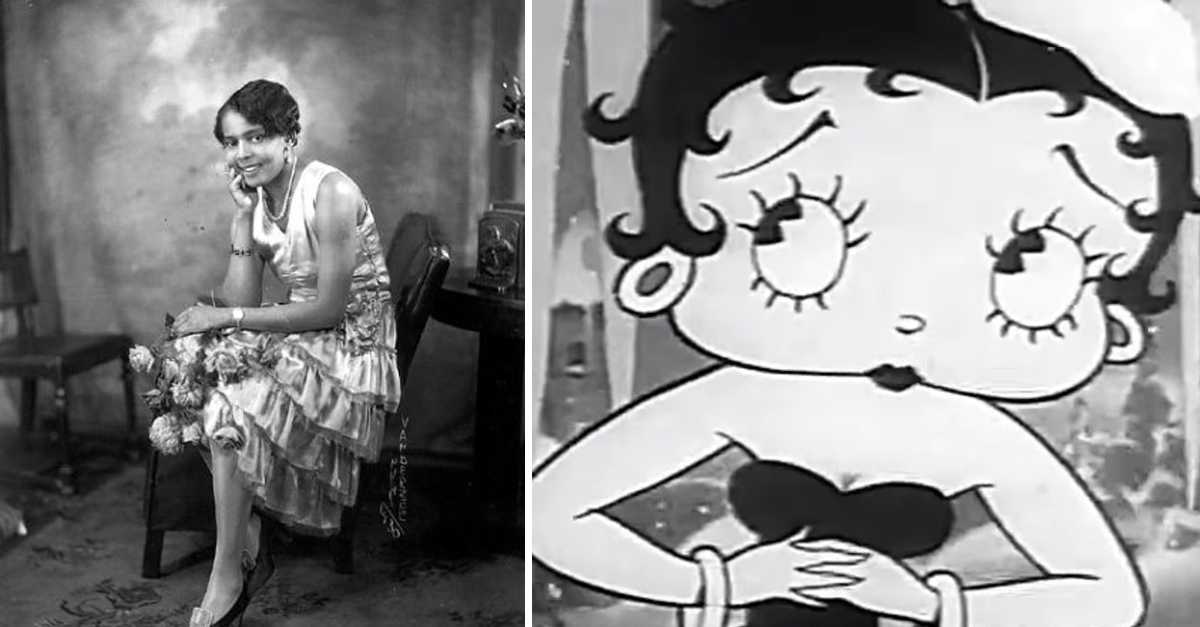 In relation to yesterday’s topic, protecting our stories and our lives from white-washing and being written out of history, I want to introduce, Black jazz singer, Esther Jones. If you know of Betty Boop and never heard of Esther Jones, than know that her story is a classic example of how Blacks are written out of history. Jones, a Harlem singer known as “Baby Esther” had a signature vocal style of using “boops” in her scats. She would sing the phrases, “Boo-Boo-Boo, Wha-Da-Da & Doo-Doo-Doo & Do-Do-De-Do-Ho-De-Wa-Da-De-Da” throughout her cabaret performances. She performed regularly in the Cotton Club during the 1920s. The Cotton Club was renamed by white gangster Owney Vincent Madden after taking it over. The venue on 142nd Street and Lenox Avenue in the center of Harlem was originally named ‘Club Deluxe’ when it was first opened by Jack Johnson who was the first African American heavyweight boxing champion. Esther’s unique style got her regular performances that drew crowds. During the mid 1920s actress Helen Kane attended one of Baby Esther’s performances. Shortly after seeing Baby Esther Kane began using “boops” in her performances. Kane used Baby Esther’s style in many of her songs including “That’s My Weakness Now” and “Good By”. Unlike Esther, Helen not being blocked in as many ways in the music industry as a white singer with a seemingly unique style became known for the “boop” style and quickly rose to the top. The American singer is known for her signature song, “I Want Be Loved by You”.
In relation to yesterday’s topic, protecting our stories and our lives from white-washing and being written out of history, I want to introduce, Black jazz singer, Esther Jones. If you know of Betty Boop and never heard of Esther Jones, than know that her story is a classic example of how Blacks are written out of history. Jones, a Harlem singer known as “Baby Esther” had a signature vocal style of using “boops” in her scats. She would sing the phrases, “Boo-Boo-Boo, Wha-Da-Da & Doo-Doo-Doo & Do-Do-De-Do-Ho-De-Wa-Da-De-Da” throughout her cabaret performances. She performed regularly in the Cotton Club during the 1920s. The Cotton Club was renamed by white gangster Owney Vincent Madden after taking it over. The venue on 142nd Street and Lenox Avenue in the center of Harlem was originally named ‘Club Deluxe’ when it was first opened by Jack Johnson who was the first African American heavyweight boxing champion. Esther’s unique style got her regular performances that drew crowds. During the mid 1920s actress Helen Kane attended one of Baby Esther’s performances. Shortly after seeing Baby Esther Kane began using “boops” in her performances. Kane used Baby Esther’s style in many of her songs including “That’s My Weakness Now” and “Good By”. Unlike Esther, Helen not being blocked in as many ways in the music industry as a white singer with a seemingly unique style became known for the “boop” style and quickly rose to the top. The American singer is known for her signature song, “I Want Be Loved by You”.
 In 1930 when Max Fleicher created the iconic cartoon character Betty Boop, who booped as apart of her provocative flapper character, Kane sued Fleischer and Paramount Public Corporation for $250,000 arguing that the animation was modeled after her. However, in court video evidence proved that Kane was not the originator of the booping style and she did not win the case. Although she lost Helen’s attempt to take the case to court is a gross illustration of how although Kane knew she did not originate the style she, being white, felt entitled to it anyway since she’d only heard it performed by a Black woman in Harlem. Although Esther Jone’s created her own unique “baby style” it did little to bring her fame, and while it benefited others she died relatively unknown.
In 1930 when Max Fleicher created the iconic cartoon character Betty Boop, who booped as apart of her provocative flapper character, Kane sued Fleischer and Paramount Public Corporation for $250,000 arguing that the animation was modeled after her. However, in court video evidence proved that Kane was not the originator of the booping style and she did not win the case. Although she lost Helen’s attempt to take the case to court is a gross illustration of how although Kane knew she did not originate the style she, being white, felt entitled to it anyway since she’d only heard it performed by a Black woman in Harlem. Although Esther Jone’s created her own unique “baby style” it did little to bring her fame, and while it benefited others she died relatively unknown.
We must remember and defend the fact that Black Americans are the creators of America’s only song and dance. We must take ownership of this. Our music styles throughout history inspired not only Hip-Hop and Rap music but also the Blues, first recorded by Mamie in 1920; Rock & Roll which was invented by Chuck Berry in 1955 and even Metal music which was majorly influenced by Jimmy Hendrix. Regardless, like Esther Jones, Black entertainers are rarely credited for their influence on music. Even today we are ever-constant resource of inspiration for pop-culture that appropriates our styles from music to cornrows being re-named ‘boxer-braids’. There are countless stories like these where Black musicians, singers, inventors, artists, speakers, politicians, scientists, and engineers die forgotten, whose work was stolen and in many cases accredited to a white person whose name continues to receive unjust praise as our ancestors roll in their graves.

